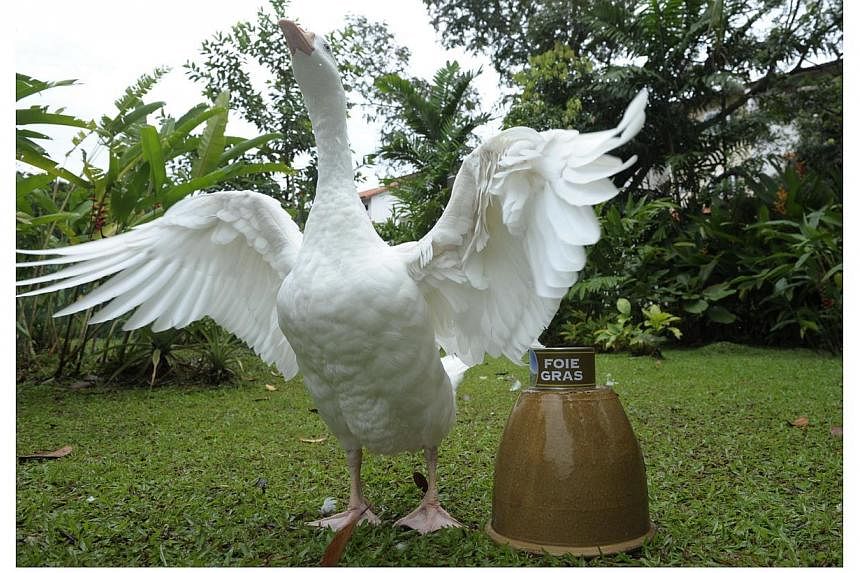WASHINGTON (REUTERS) - In a victory for animal rights activists, the U.S. Supreme Court on Tuesday allowed California to continue to ban foie gras, a delicacy produced from the enlarged livers of ducks and geese that have been force-fed corn.
Rejecting a legal challenge to the state law, the court declined to hear an appeal filed by restaurants and producers of foie gras. In doing so, the high court left intact an August 2013 ruling by the 9th U.S. Circuit Court of Appeals upholding the law.
California enacted the law in 2004 but it did not go into effect until 2012.
Foie gras means "fatty liver" in French. The product is produced by force-feeding corn to ducks and geese to enlarge their livers, which are harvested to make gourmet dishes. Animal rights groups contend that the force-feeding process is painful, gruesome and inhumane.
The law specifically bans any product created by "force feeding a bird for the purpose of enlarging the bird's liver beyond a normal size".
Los Angeles-based Hot's Restaurant Group, Canada's Association des Eleveurs de Canards et d'Oies du Quebec and New York producer Hudson Valley Foie Gras challenged the ban in a lawsuit filed last year.
They argued that the law violates the U.S. Constitution's Commerce Clause, which prohibits states from interfering with interstate commerce. But the 9th U.S. Circuit Court of Appeals rejected that argument, saying the state was within its rights to impose the ban.
Animal rights groups welcomed the Supreme Court's action.
"The Supreme Court's decision means that the people of California have the right to prohibit the sale of certain food items, solely because they are the product of animal cruelty," Jonathan Lovvorn, chief counsel for the Humane Society of the United States, said in a statement. "The holding in this case - that states have the right to cleanse their markets of cruel products - is a precedent of enormous consequence for millions of animals."
John Burton, the former California state legislator who authored the law, added: "This effort was a long, hard fight. But it was worth fighting and worth winning."

